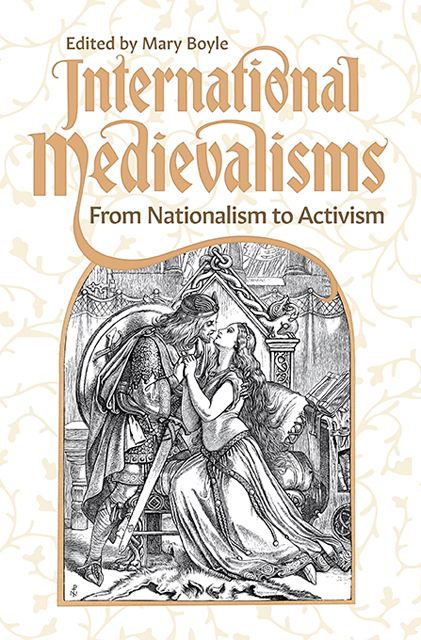7 - ‘Out of My Country and Myself I Go’: A Discourse of the Troubadour in British and Irish Literature
Published online by Cambridge University Press: 09 June 2023
Summary
Despite their relatively brief historical existence, the troubadours of medieval France have endured for centuries in the imagination thanks to continued interest from scholars and frequent reinterpretation in both academic studies and fictional renderings. Many readings and characterizations fill in the blanks of missing evidence, either reinventing or entirely glossing over historical and geographical fact. With so little extant detail on the existence and work of the troubadours, this fate may have been inevitable. Eighteenth- and nineteenth-century British reimaginations of the medieval French troubadour offer a particularly useful prism through which to explore how this came to be the case, alongside its implications for the broader picture of how we understand medieval history. How the troubadours, unique to medieval France, found their way into Romantic literature in Britain and Ireland is no mistake or coincidence; in them, Romantic writers saw something rare and exotic, yet familiar and relatable, and engaged in this medievalism by bringing them out of one context and into another. This is no isolated resurfacing of random medieval texts and artefacts: this is part of the story of the emergence of the disciplines of archaeology and manuscript studies, which awakened medieval historiography, which would beget international scholarship and readership, only further sparking interest for popular writers of all genres. This intentional, though not always fully informed, reimagining of medieval cultures is a typical example of medievalism.
There is plenty of scholarship today that recognizes the rose-tinted legacy of this reception tradition of troubadour identity in literature, art, and other media. Take, for instance, Grove Music Online from the Oxford Dictionary of Music's statement in their entry on troubadours and trouveres: ‘The romantic idea of the troubadour in the nineteenth century is slowly fading before the careful, more realistic appraisal built by scholars over the years. Far from being a carefree vagabond “warbling his native woodnotes wild”, the troubadour was characteristically a serious, well-educated and highly sophisticated verse-technician.’ This is echoed in other pieces of scholarly work, such as those by Elizabeth Fay, John Haines, and Maureen McLane, to name just a few. This assertion is a useful starting point, but, as I will demonstrate, it also invites challenge.
Often enough, the troubadour has been associated with a similar but distinct figure, the minstrel.
Information
- Type
- Chapter
- Information
- International MedievalismsFrom Nationalism to Activism, pp. 111 - 126Publisher: Boydell & BrewerPrint publication year: 2023
